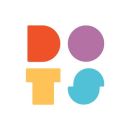Imagine your favorite dish at a restaurant. Behind that fresh halibut or gourmet burger is years of professional development.
The head chef’s career journey might have begun with waiting tables at a local diner. There, they learned how to interact with customers and kitchen staff. Then, say they went to culinary school to study the technical aspects of cooking and how to prepare classic dishes, as well as develop their own flair. Upon graduating, they might have been a station chef where they applied their education and honed specific skills, like perfectly roasting a chicken. Eventually, they became a sous chef, and studied the head chef’s process while strengthening their own creative muscles.
Finally, they oversee the product — a delicious meal — along with the pieces that make it possible — the recipe, ingredients and the team. But they still continue to learn. They create or refresh the menu for the first time, develop new recipes or a signature dish, try new techniques and experiment with flavors.
Like the head chef, a product manager’s goal is to deliver a product that a customer wants. Continued professional development is essential for product development. Mentorship programs, specified training and the chance to apply new knowledge in practice are all opportunities that help product managers sharpen their skills, try new things and lead teams to execute a vision.
“I have benefited from taking external courses, having access to our team’s network of product experts and the autonomy to make important product decisions from day one,” said Sam Shaffer, director of product at January who recently led the company’s rebrand. “All of these things have shaped me into the product leader I am today.”
Built In NYC reached out to Shaffer and two other product managers to find out more about how professional development opportunities, no matter where they originate, have helped them to realize their career goals while pushing the product to new limits.
Work & Co designs websites, apps and digital experiences for companies and brands.
Tell us about a project you’ve worked on at Work & Co that has helped you develop or hone your product management skills. How did this project help you grow?
In 2020, I helped lead Work & Co’s partnership with Trading.com to design a next-generation trading platform that would break down barriers generally associated with foreign exchange trading and help make it more approachable to all experience levels. The work was already inherently complex, but on top of it, we were at the start of a pandemic, designing two platforms in parallel and collaborating across time zones. With all the unknowns in the world, it was vital that we created structure and predictability for our team. This included adding additional rituals to ensure constant alignment. We leaned heavily on cloud-based solutions where we could all be working in the same place at once.
This project strengthened my skills around the change management process. In addition to my soft skills with frequent one-on-one check-ins with team members, open and honest dialogue about how people were feeling and remote social events helped foster team spirit and created a cohesive team. The soft skills I honed during this project have carried through to my work today and strengthened my ability to support a team.
Give us a little more insight into professional development at Work & Co. What other growth opportunities exist for product managers?
One of the biggest opportunities at Work & Co is working closely every day with the best people in the industry, collectively honing our craft. We offer a variety of avenues to continuously sharpen and grow our product skills from a best-in-class mentorship program, to cross-disciplinary training, to educational stipends. New team members are thoughtfully paired with a mentor in their discipline. Mentors help mentees succeed here and provide support in their career development and growth. They ensure that mentees are staffed on projects that align with their interests and goals. The mentorship program aims to provide professional opportunities for career and leadership development while working alongside industry leaders.
Work & Co offers a variety of training sessions, from the latest web content accessibility guidelines, to technical annotation writing, to being a strong mentor. Additionally, the product management department runs hands-on monthly small team meetings where we learn from one another about new techniques that can be applied to our projects. We also have annual learning stipends to be used in areas of interest.
Positive team health is critical to building successful products.”
What’s a surprising or unexpected way these experiences have affected the overall trajectory of your career?
Being hands-on is crucial and really accelerates growth. When I joined Work & Co in 2017, I quickly grew my product knowledge and skills by being deeply involved in all aspects of the product creation process. I started working on smaller, feature-specific projects and continuously worked on more complex initiatives. That helped me develop the skills needed to manage large-scale, complex projects and understand how constraints play a role. I’m impressed by how collaborative the Work & Co team is and how quickly we can respond to client challenges. I’ve also found that I’ve partnered with our clients more closely than in previous roles. I’ve had truly collaborative experiences creating products with our client partners, which makes for more interesting projects, because both parties can engage in a feedback loop and learn from each other. Positive team health is critical to building successful products. It’s important for both internal and client partners to collaborate as a unified team. Frequent communication, clear processes and addressing misunderstandings respectfully all contribute to a healthy team.
January sets a new standard for humanized debt collection with their tech-enabled platform that improves recovery rates and sets creditors and borrowers up for success.
Tell us about a project you’ve worked on at January that has helped you develop or hone your product management skills.
We recently went through a rebrand that included changing our name from Debtsy to January, crafting new visual and verbal guidelines and updating our website. I was responsible for making sure that the foundation of our new name and identity spoke to our three audiences: lenders, borrowers and candidates.
Unlike small product changes that improve a metric or two and impact a couple teams, changing a company brand impacts hard-to-measure items like sentiment. Our rebrand required developing a new persona and brand guidelines, updating legal documents, messaging borrowers and clients so they understand the change and more! Every team in the company was a part of this project. The experience taught me how to get groups of people from different departments and perspectives to rally behind an idea. I walked away with a much deeper appreciation for, and skill set in, managing expectations and motivating people to work on a multi-month project.
I owe my deep appreciation of thoughtful writing and strong processes to the January team.”
What other growth opportunities exist for product managers at January?
January provides two types of professional development opportunities: resources for team members to learn and opportunities to apply what they’ve learned in real time. We try to combine the best of working in larger and smaller organizations, meaning that we provide the opportunity to apply learnings in ways that will have a meaningful impact on the business. I believe this is the fastest way for anyone to grow their career and a large part of the reason I would suggest joining January.
Tactically, this looks like giving team members an annual stipend for learning and development, hosting bi-weekly product and technical learning meetings, and creating Slack channels and book clubs for the whole company to share things they’ve learned. It also means that managers are held responsible for helping their team set meaningful goals, take smart risks and grow in their role.
What’s a surprising or unexpected way these experiences have affected the overall trajectory of your career?
I joined the January team in 2019 as the first product manager. Since then, I’ve been given the opportunity to lead the product function. In the last three years, I’ve thrown myself into both tactical and strategic decisions. Being responsible for such varied work allowed me to gain a deep appreciation for our business and the responsibilities of a product manager.
Outside of product specific growth, I also owe my deep appreciation of thoughtful writing and strong processes to the January team. I now ask myself how I can make it easier for team members to make smart and fast decisions or if a document I’ve created will help people do their jobs more effectively.
Dots is a mobile game studio that produces games about connecting.
Tell us about a project you’ve worked on at Dots that has helped you develop or hone your product management skills.
My first stretch project at Dots was helping to plan the roadmap for revenue-generating product features for the upcoming year. I had worked in the past on many projects guided by user research and qualitative feedback, but this was my first time using product metrics to derive financial models for different product improvements.
This was originally a daunting project due to the sheer quantity of data we have to work with, and the high impact of the project to the business, but I received strong support and feedback from my manager, and we ended up with a roadmap I was proud of. It was incredibly gratifying when we rolled out some of these features and the results closely matched my predictions.
What other growth opportunities exist for product managers at Dots?
As a product manager at Dots, you get the opportunity to grow in many different areas professionally. Having a product with millions of passionate users means learning how to get really good at interpreting both quantitative and qualitative data and developing intuition around how to translate those learnings into features to both grow the business and satisfy highly engaged players.
No matter what product skill you want to grow, there is an opportunity to do so at Dots and to do it at hyperspeed. In an agile development environment you are able to develop and test features extremely fast, which means getting to touch multiple parts of the business and be exposed to a wide range of skills. For example, new product managers at Dots will often run 10-plus A/B tests within their first month here.
Having a product with millions of passionate users means getting really good at interpreting both quantitative and qualitative data.’’
What’s an upcoming project you’re excited to work on? How will you apply some of these newly acquired skills?
There is always something new happening in the game like different levels, mini games or competitions. But having all these different options can get overwhelming — the opposite of the calm feeling we want players to experience when playing.
I’ve been put in charge of a project to find a solution that makes players aware of everything that is going on in a less overwhelming way, but also does not reduce business metrics compared to our current experience, which has been carefully tuned over the last several years.
To do this, I am working closely with our design team to brainstorm new experiences and using our usage metrics and my understanding of how the game operates as a business to differentiate between core revenue-driving features we must keep fairly prominent and other areas that need to be discoverable.











